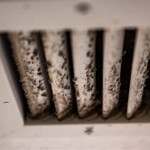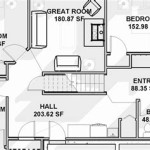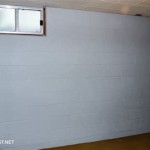What Should My Basement Humidity Be?
Maintaining optimal humidity levels in your basement is crucial for protecting your home and its contents from damage and health hazards. Understanding the ideal humidity range and how to regulate it can help you create a comfortable and healthy living space.
Recommended Humidity Levels
The ideal humidity range for a basement is between 30% and 50%. Humidity levels above 60% can lead to condensation, mold growth, and structural damage. Conversely, humidity levels below 30% can cause dryness, static electricity, and respiratory issues.
Factors Affecting Basement Humidity
Several factors can influence humidity levels in your basement, including:
- Outdoor humidity
- Water leakage or flooding
- Poor ventilation
- The presence of appliances that produce moisture (e.g., washing machine, dryer)
Consequences of High Humidity
Excessive humidity in your basement can lead to:
- Mold Growth: Mold thrives in damp environments and can cause respiratory problems, allergies, and structural damage.
- Condensation: Moisture in the air can condense on cold surfaces, such as walls, pipes, and windows, leading to water damage.
- Structural Damage: Humid air can weaken wood, causing rotting and warping of floors, walls, and beams.
Consequences of Low Humidity
Insufficient humidity in your basement can also cause problems:
- Dryness: Low humidity can cause dryness of the skin, throat, and nasal passages, making you more susceptible to respiratory infections.
- Static Electricity: Dry air can lead to static electricity, which can be annoying and damaging to electronic equipment.
- Wood Shrinkage: If humidity levels fall below 25%, wooden furniture and flooring can shrink and crack.
Regulating Basement Humidity
To maintain optimal humidity levels in your basement, consider implementing the following measures:
- Dehumidifiers: Dehumidifiers remove excess moisture from the air, effectively reducing humidity levels.
- Ventilation: Proper ventilation allows fresh, dry air to circulate in the basement, reducing humidity.
- Moisture Barriers: Installing moisture barriers on basement walls and floors can prevent water leakage and reduce humidity.
- Insulation: Insulating basement walls and ceilings helps prevent condensation by reducing temperature fluctuations.
Monitoring Humidity Levels
To ensure your basement humidity stays within the recommended range, it's essential to monitor levels regularly. Use a hygrometer to measure the relative humidity in the basement. If levels are consistently above or below the ideal range, consider adjusting your humidity control measures.
Maintaining optimal basement humidity is essential for the health of your home and its occupants. By understanding the recommended humidity levels, factors affecting them, and implementing effective humidity control measures, you can create a comfortable and healthy basement environment.

How To Achieve An Ideal Basement Humidity Of 30 50

How To Achieve An Ideal Basement Humidity Of 30 50

A Guide To Controlling Nc Home Humidity Newcomb And Company

How To Achieve An Ideal Basement Humidity Of 30 50

How To Lower Your Basement S Humidity Level

How To Lower Your Basement S Humidity Level

Moisture In Basements Causes And Solutions Umn Extension

The Ideal Basement Humidity In Winter Everdry Toledo Oh Mi

Relative Humidity Why You Need To Understand It News And Events For Basement Systems Inc

What Is The Ideal Basement Humidity Level Epp Foundation Repair
Related Posts







